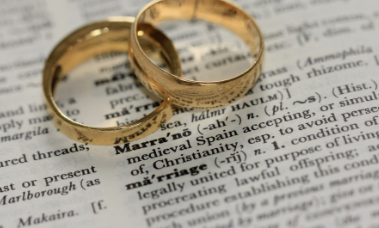Marital Agreements and Matrimonial Property Regimes in French Law
FRANCE
1/9/20252 min read


Marriage is not just an emotional commitment but also a legal partnership with financial implications. In France, marital agreements and matrimonial property regimes play a pivotal role in defining the financial relationships between spouses during their marriage and in case of separation, divorce, or death. These agreements provide clarity and security, especially for couples with significant assets, business interests, or international ties.
Types of Matrimonial Property Regimes in French Law
French law recognizes several matrimonial property regimes, each offering unique ways to manage and distribute assets:
Community of Property (Régime de la communauté réduite aux acquêts):
The default regime for couples who do not opt for a specific marital agreement. Under this regime, assets acquired during the marriage are shared equally, while individual property owned before marriage or received as inheritance remains personal.Separation of Property (Régime de la séparation de biens):
Each spouse retains full ownership and management of their assets, whether acquired before or during the marriage. This regime is popular among entrepreneurs and couples with complex financial situations.Universal Community (Régime de la communauté universelle):
All assets, regardless of when or how they were acquired, are considered joint property. This regime is often chosen by older couples seeking simplicity in estate planning.Participation in Acquisitions (Régime de la participation aux acquêts):
A hybrid regime where each spouse retains ownership of their assets during the marriage but shares in the value of acquisitions made during the marriage upon its dissolution.
Creating a Marital Agreement in France
To formalize a marital agreement, couples must follow specific legal steps:
Consultation with a Notary:
French law mandates that marital agreements be prepared and registered by a notary. The notary ensures that both parties understand the legal and financial implications of their choices.Timing:
A marital agreement can be signed before the marriage or amended during the marriage. However, post-nuptial changes require court approval.Legal Requirements:
Both spouses must consent freely, without coercion. The agreement must comply with public policy and French legal standards.
Implications of Matrimonial Property Regimes
The chosen property regime has significant implications during the marriage and in case of its dissolution:
During Marriage:
The regime determines how spouses manage their assets and liabilities, including responsibilities for debts. For example, under the separation of property regime, each spouse’s financial independence is preserved.In Divorce or Death:
The property regime dictates the division of assets and financial obligations. For instance, under the community of property regime, assets acquired during the marriage are divided equally, which might not suit couples with unequal contributions.
Common Challenges and Misconceptions
Many couples hesitate to create marital agreements, fearing it signals distrust. However, these agreements are practical tools for conflict prevention and financial transparency. Another misconception is that the default regime suits everyone, which is not always true, especially for international couples or those with significant assets.
Practical Advice for Couples
Couples considering marriage in France should:
Assess Their Financial Situation: Determine which regime aligns best with their current and future goals.
Consult Professionals: Seek advice from a notary or legal expert specializing in family law to navigate the complexities of French matrimonial law.
Discuss Openly: Communication between partners about financial expectations is essential to ensure mutual understanding and agreement.
Conclusion
Marital agreements and matrimonial property regimes are essential tools for safeguarding the financial interests of spouses in France. By understanding their options and seeking professional guidance, couples can create a solid foundation for their marriage, ensuring clarity and security in their financial partnership.
This comprehensive understanding is especially crucial for expatriates and international couples, who may face additional legal complexities due to their unique circumstances.
